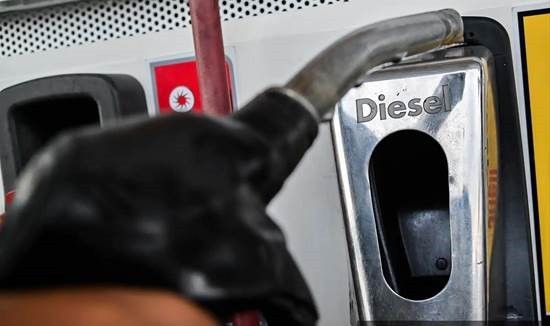
Image credit: FMT
KUALA LUMPUR: Economists believe the government has done enough to ensure that the float of diesel price for Peninsular Malaysia from Monday will have minimal impact on inflation and consumer prices.
Diesel prices in Peninsular Malaysia will go up RM1.20 a litre from Monday to RM3.35 a litre.
"The government has provided some cushion to the inflationary effects by providing Budi Madani subsidy credit monthly into those diesel road users whose annual income is less than RM100,000 per annum. This is to ensure it will not burden those who deserve support," Tradeview Capital Sdn Bhd chief executive officer Ng Zhu Hann.
He added that the price essential goods will not be affected by the increase in diesel price due to the Budi Madani programme.
The MySubsidi Diesel Fleet Card Programme and the Budi Madani subsidy will assist businesses, low- to middle-income individuals who use diesel vehicles, and plantation workers in managing the higher diesel costs.
Today, the government will pay out RM200 in cash aid to some 30,000 private car diesel owners who have registered for Budi Madani and Budi Madani Agri-Commodity programmes.
Director and Founder of Williams Business Consultancy Sdn Bhd Dr Geoffrey Williams said consumers are not expected to see price increases for goods and services due to the diesel price hike.
"They have to use more than 167 litres before it costs more and most will be better off if they can economise on how much they use.
"For almost everyone nothing will change and for a small number of private diesel users costs will rise and they should consider better options. "So if people see prices rising and companies blaming subsidy rationalisation they should report the company or stop buying from them and find a better deal from someone else," he told Business Times.
Williams said the change is expected to have a minimal impact on inflation and consumer prices, as diesel only makes up 0.2 per cent of the Consumer Price Index.
He also said even with the diesel price increase, the overall inflation rate is expected to stay well within the government's target of 3.5 per cent.
IDEAS Malaysia economist and assistant research manager Doris Liew said one significant change is that the government will reduce its subsidy spending by approximately RM4 billion annually.
Additionally, by curbing the abuse of subsidised diesel—where some private entities have been purchasing it and reselling it across borders at higher prices—the government can save money without negatively impacting the domestic market, added Liew.
Williams said the government must communicate the progress, successes and benefits so that people can see how it is working.
Meanwhile, Economy Rice podcast macroeconomic analyst Aaron Pek said the government should take a wait-and-see approach before reacting to any resulting inflation from the removal of diesel subsidies.
"The resulting inflation will by and large self-regulate by broadly reducing aggregate demand across the economy; however seeking to boost aggregate demand via government stimulus might only serve to worsen inflation," said Aaron.
He also said the long-announced targeted subsidies under the Pangkalan Data Utama scheme, as well as the recent hike in wages of government employees, are likely to provide some assistance to those most heavily affected by the removal of fuel subsidies.
Source: https://www.nst.com.my/business/2024/06/1061625/diesel-price-float-have-minimal-impact-inflation

